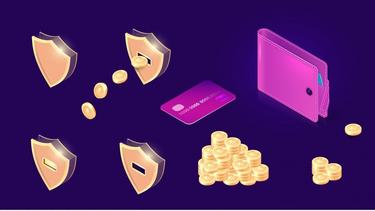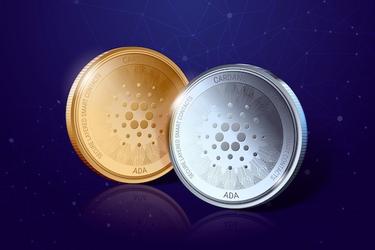Security token
A security token[1] is a digital representation[2] of a traditional security, such as a stock, bond, or real estate investment trust (REIT), on a blockchain[3]. Security tokens[4] are subject to federal securities regulations and offer investors ownership interests in the underlying asset or company. They aim to combine the advantages of blockchain technology, like transparency[5] and efficiency, with the legal protections of traditional securities.
- Benefits of Security Tokens
- Regulatory Framework
- Challenges Facing Security Tokens
- The Future of Security Tokens
- Security token
- Understanding Security Tokens
- The Regulatory Landscape of Security Tokens
- Advantages of Security Tokens
- Challenges Facing Security Tokens
- Security Token Offerings (STOs)
- The Future of Security Tokens
Benefits of Security Tokens
Security tokens offer several benefits over traditional securities, including:
- Increased Liquidity[6]: Blockchain technology facilitates easier and faster trading of security tokens, potentially increasing market liquidity.
- Reduced Costs: Automating compliance[7] and other processes through smart contracts[8] can significantly reduce issuance and management costs.
- Global Access: Security tokens can be traded internationally, broadening access to capital and investment opportunities.
- Transparency and Security: The use of blockchain ensures transparent and secure record-keeping of ownership and transactions.
Regulatory Framework
The issuance and trading of security tokens are governed by securities laws[10], which vary by jurisdiction. In the United States, security tokens must comply with regulations such as the Securities Act of 1933 and the Securities Exchange[11] Act of 1934, among others.
Challenges Facing Security Tokens
Despite their potential, security tokens face challenges, including:
- Regulatory Uncertainty[12]: The evolving regulatory landscape[13] can pose challenges for issuers and platforms.
- Market Adoption: Widespread acceptance of security tokens by investors and traditional financial institutions is still in progress.
- Technical Complexity: Implementing and managing security tokens requires understanding both finance and blockchain technology.
The Future of Security Tokens
As regulatory clarity[14] improves and technology matures, security tokens may significantly impact how investments are made and traded, offering a more efficient, inclusive, and transparent financial system.
Security token
Security tokens represent a significant innovation in the intersection of traditional finance and modern blockchain technology. They are digital assets that derive their value from real-world assets, such as stocks, bonds, real estate, or other forms of investments. Unlike cryptocurrencies[15] or utility tokens, which are often used as a medium of exchange[16] or to access a specific platform or service, security tokens are designed to represent tangible ownership or stake in an asset, subject to regulatory compliance[17]. This integration of blockchain technology into the financial sector promises to enhance liquidity, transparency, and efficiency while ensuring compliance with legal frameworks.
Understanding Security Tokens
Security tokens are digital representations of ownership or interest in an asset, secured on a blockchain. They are subject to financial regulations and provide investors with various rights such as equity, dividends, profit sharing, or voting rights. The tokenization[18] of securities onto a blockchain platform offers a modern approach to finance, combining the benefits of blockchain’s security and transparency with traditional investment’s regulatory compliance.
The Regulatory Landscape of Security Tokens
One of the critical aspects of security tokens is their need to comply with regulatory standards. Different jurisdictions have specific regulations governing the issuance, trading, and ownership of securities, which apply to security tokens as well. This regulatory compliance is crucial for the legitimacy and widespread adoption of security tokens, ensuring they meet legal requirements for securities offerings and protect investors.
Advantages of Security Tokens
Security tokens offer numerous benefits over traditional securities and other types of digital assets. They enable fractional ownership[19] of assets, making previously illiquid assets more accessible to a broader range of investors. Blockchain technology ensures transparency and immutability[20] of transactions, reducing fraud and increasing trust. Additionally, smart contracts automate and streamline compliance, dividends distribution, and other processes, reducing administrative costs and increasing efficiency.
Challenges Facing Security Tokens
Despite their potential, security tokens face several challenges. Regulatory uncertainty and varying international standards can complicate issuance and trading. The technology infrastructure for trading and managing security tokens is still developing, requiring more robust exchanges and wallet[21] services. Moreover, market adoption relies on educating investors and issuers about the benefits and operations of security tokens, which takes time and effort.
Security Token Offerings (STOs)
Security Token Offerings (STOs) are a method of fundraising that allows companies to issue security tokens to investors. STOs are seen as a more regulated and secure alternative to Initial Coin Offerings (ICOs), providing a legal framework for tokenized investment products. STOs require adherence to regulatory standards, offering investors a higher degree of protection.
The Future of Security Tokens
The future of security tokens is promising, with the potential to revolutionize the way investments are made, traded, and managed. As regulatory frameworks evolve and technology infrastructure matures, security tokens could offer a more efficient, transparent, and inclusive financial system. Their ability to tokenize a wide range of assets opens up new investment opportunities and could significantly impact global finance.
In conclusion, security tokens represent a groundbreaking fusion of blockchain technology with traditional financial securities. They offer a compelling proposition for enhancing liquidity, transparency, and efficiency in financial markets, despite facing challenges related to regulation, technology, and adoption. The continued evolution of the regulatory landscape and technological infrastructure will be critical in determining the role security tokens will play in the future of finance.
- Token — A unit of value issued by a project, representing various assets or utilities on a blockchain.
- Digital Representation — A digital version of a physical or non-physical asset, recorded on a blockchain, that represents ownership or rights.
- Blockchain — A decentralized digital ledger recording cryptocurrency transactions across multiple computers.
- Security Tokens — Digital tokens that represent ownership or an interest in real-world assets, subject to regulatory compliance.
- Transparency — The characteristic of blockchain technology that allows all transactions to be visible and verifiable by all network participants.
- Liquidity — The ease with which a cryptocurrency can be bought or sold in the market without affecting its price.
- Compliance — The act of adhering to legal standards and regulations established by governmental bodies and regulatory agencies, particularly in the context of financial operations and transactions involving cryptocurrencies.
- Smart Contracts — Self-executing contracts with terms directly written into code, facilitating, verifying, or enforcing a contract on the blockchain.
- Regulatory Framework — A set of regulations and guidelines established by authorities that govern the operation of financial markets and instruments.
- Securities Laws — Laws regulating the offer and sale of securities to protect investors against fraud, requiring transparency and disclosure.
- Exchange — A platform where individuals can buy, sell, or trade cryptocurrencies for other digital currency or traditional currency.
- Regulatory Uncertainty — The lack of clear regulatory guidelines and frameworks governing the use and trading of virtual assets.
- Regulatory Landscape — The set of laws, guidelines, and policies that govern the use of virtual assets across different regions.
- Regulatory Clarity — The evolution of legal frameworks to better accommodate and govern blockchain technology, which is expected to encourage wider adoption and innovation across various sectors.
- Cryptocurrencies — Digital or virtual currencies that use cryptography for security and operate on a decentralized system, unlike traditional currencies.
- Medium of Exchange — An intermediary instrument used to facilitate the sale, purchase, or trade of goods between parties.
- Regulatory Compliance — Adherence to laws, regulations, guidelines, and specifications relevant to business processes.
- Tokenization — The process of issuing a blockchain token that digitally represents a real tradable asset.
- Fractional Ownership — A method of asset ownership where multiple parties can own a portion of the asset, enhancing liquidity and accessibility.
- Immutability — The characteristic of blockchain technology that ensures once data is recorded, it cannot be altered or tampered with, providing a secure and tamper-evident record of transactions.
- Wallet — A digital tool that allows users to store and manage their cryptocurrency addresses.
- Harvard Law School Forum on Corporate Governance. 'The Rise of Security Tokens', 2019.
- Coindesk. 'Understanding Security Tokens', 2020.



